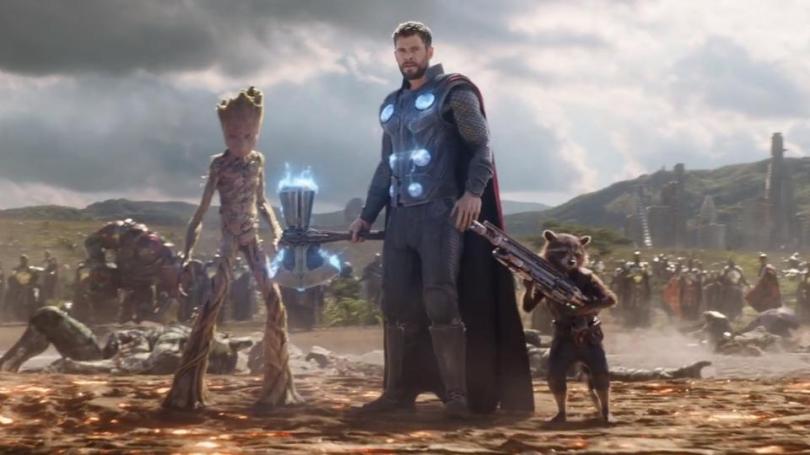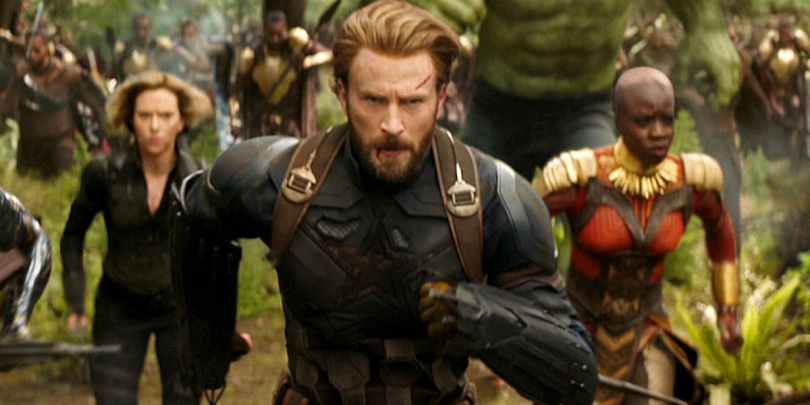Marvel movie music sucks.
As a whole, the drab bombast exists as just another means of propping up the Iron Mans and Black Widows of the Cinematic Universe, dramatic enough to propel action sequences but anonymous enough to never distract from Tony Stark’s shiny “Hulkbuster” armor. (Look no further than Every Frame A Painting‘s viral takedown of MCU scores for some concrete analysis).
So color me surprised to say I haven’t stopped thinking about Black Panther‘s music since February. Composer Ludwig Göransson hasn’t just written the best score for any Marvel movie ever; he’s written the best film music of any movie this year.
As a film, Black Panther has a lot to say. The fictional kingdom of Wakanda and its new ruler, T’Challa, draw on questions of culture and legacy and conquest — all of which are complicated with the introduction of violent usurper Killmonger. And, mind you, this is one of those rare superhero joints where the baddie has a not-entirely-unreasonable perspective.
Ultimately, the biggest idea on director Ryan Coogler’s mind centers around how people can learn to honor the past while not repeating it. It’s why Coogler begins and ends with a Wakandan “bugatti” spaceship landing in the middle of the Oakland projects.
It’s also why Göransson’s music is genius. The longtime Coogler collaborator traveled to Senegal for a month to study its music, following, among other musicians, Baaba Maal and incorporating recorded selections into orchestral arrangements. In blending contemporary action scoring with traditional African music, Göransson textures Black Panther with culture and ingenuity; it’s about as symbolically “Wakandan” as you can get. Among the many standout examples:
Black Panther‘s opening sequence is tremendously efficient in introducing Wakanda’s tribal history and cutting-edge technology, and the narration hints at subsequent geopolitical stakes as a result. And all of it transpires under this babbling brook of talking drums:
One of the strongest elements in Göransson’s work is how his recurring themes rest somewhere in between triumph and tragedy. His introduction for T’Challa as the Black Panther announces the character’s importance while never championing his actions against a terroristic Nigerian caravan:
As for the introduction to Wakanda, Goransson recalls T’Challa’s triplet theme but not before using a ceremonial “outcall” that glides over the African countryside. The result is a majestic balance of the country’s fictional present and its traditional past:
My favorite theme serves as a familial one, first playing under T’Challa when he reunites with his father’s spirit in the Ancestral Place. The sequence features this figure prominently, with gorgeous strings playing in unison:
Goransson issues variations on this theme throughout the film, including a darker distillation for Killmonger, which serves as the exclamation point at the end of his raid on a British museum. Knowing the story behind his true identity, it’s as clever a bit of foreshadowing as it is an empathetic acknowledgement that this particular villain’s complex pain is neither nor foreign not unjustified:
The MCU’s primary objective is to make inoffensive content first and push ideas second (or even third). Because of that low bar, Marvel’s successes are graded on a curve. But Black Panther is a rare exception, a cinematic miracle for any number of reasons, from its positioning of actors of color to its massive box office take. Its music is essential in understanding its success, introducing a fictional world while paying respect to a real one.


